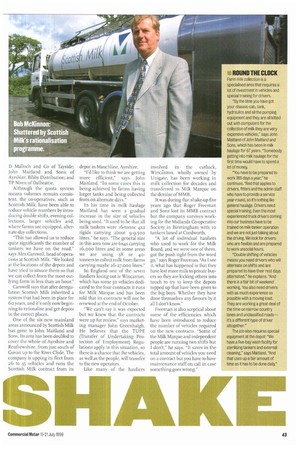ROUND THE CLOCK
Page 45

If you've noticed an error in this article please click here to report it so we can fix it.
Farm milk collection is a specialised area that requires a lot of investment in vehicles and special training for drivers.
"By the time you have got your chassis-cab, tank, hydraulics and all the pumping equipment and they are all kilted out with computers for the collection of milk they are very expensive vehicles," says John Maitland of John Maitland and Sons, which has been in milk haulage for 67 years. 'Somebody getting into milk haulage for the first time would have to spend a lot of money.
"You have to be prepared to work 365 days a year," he continues. "And that applies to drivers, titters and the admin staff who have to provide a service year-round, so it's nothing like general haulage. Drivers need special training. Even the most experienced truck drivers coming into our business have to be trained on milk-tanker operation and we are not just talking about the driving. We look for drivers who are flexible and are prepared to work unsocial hours.
"Double shifting of vehicles means you need drivers who will alternate on shifts and are prepared to have their rest days alternated, he explains. "And there is a fair bit of weekend working. You also need drivers with as much experience as possible with a moving load. They are working a great deal of the time on narrow country lanes and unclassified roads— it's a different type of driver altogether."
The job also requires special equipment at the depot: 'We have a five-bay wash facility for sterilising tankers and external cleaning," says Maitland. "And that uses up a fair amount of time as it has to be done daily."












































































































